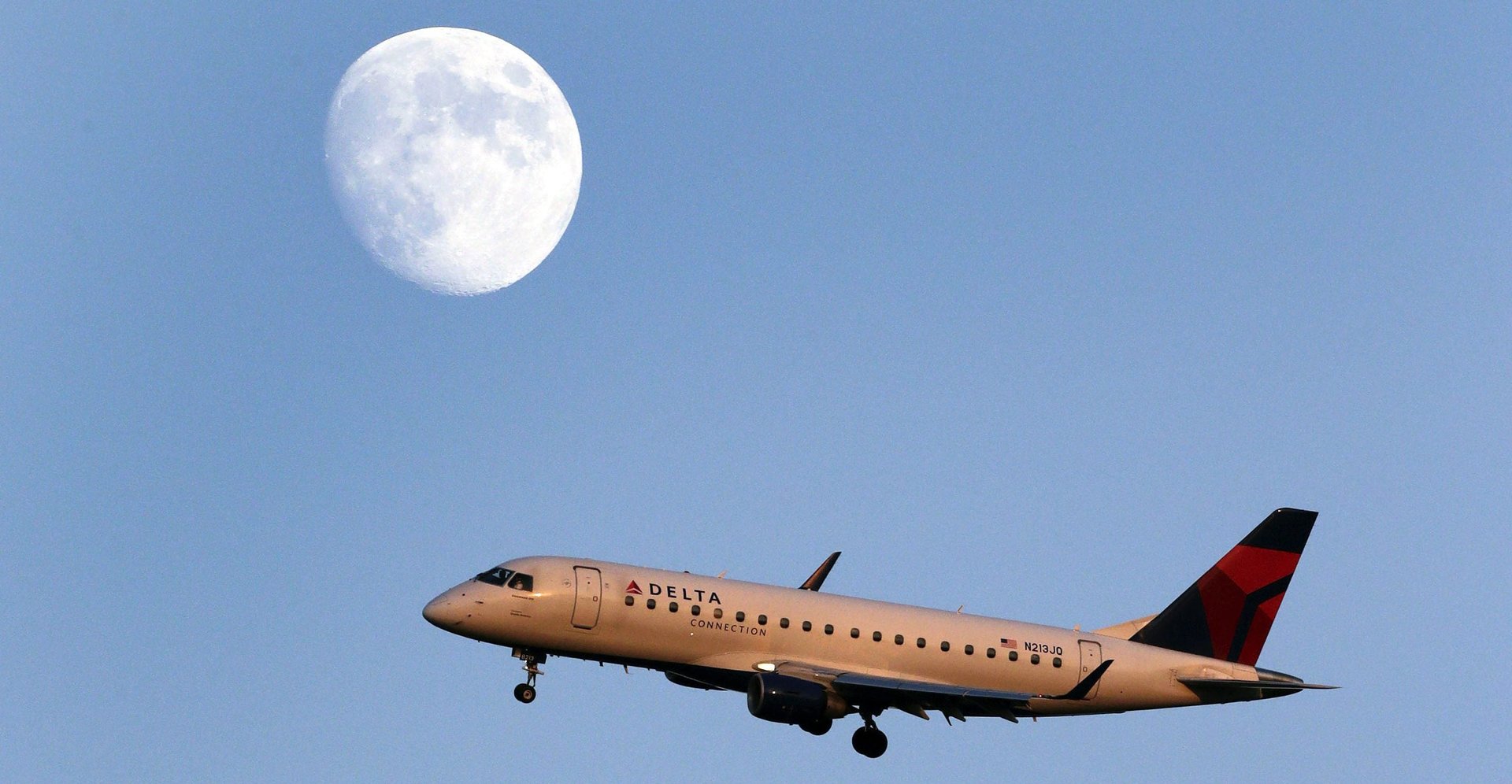Delta says it will spend $1 billion to reduce its climate footprint
The world’s second-largest airline says it plans to be carbon neutral, and that it will spend $1 billion over the next decade to reduce its environmental footprint.


The world’s second-largest airline says it plans to be carbon neutral, and that it will spend $1 billion over the next decade to reduce its environmental footprint.
Delta announced this week it will invest in sustainable aviation fuels, update its fleets with more efficient planes, work on forestry and wetland projects that remove carbon from the atmosphere, and find ways to decrease emissions throughout its supply chains.
The announcement comes amid the “flight shame” phenomenon, with people growing more aware of just how much carbon dioxide is generated during air travel. In her globe-crossing climate activism expeditions, Greta Thunberg publicly gave up air travel and opted to sail.
“We don’t ever want to put customers in a position between having to choose between a great travel experience versus the impact they have on our planet,” said Delta CEO Ed Bastian in a LinkedIn post.
Air travel represents about 2.4% of global carbon dioxide emissions, according to the International Council on Clean Transportation. A roundtrip flight between New York and San Francisco is estimated to generate some 744 kg of the greenhouse gas. There are 51 countries where the average person produces less than that in an entire year, according to a calculator developed by the Guardian.
Still, Delta’s announcement has caught some heat for lacking much detail and accountability. It’s common now for big companies to tout ambitious goals to pollute less. Just a day earlier, petroleum giant BP announced it wants to cut its carbon emissions to net zero by 2050—a plan that also lacked much specificity. And $1 billion is a drop in the bucket for a company the size of Delta, amounting to about 3% of its total earnings over the last decade.
“2020 will see a number of milestones that demonstrate Delta’s progress and commitment, and that Delta will share broadly as each of them launch,” the company said in its statement.
As with other promises on the environment from corporate behemoths, it’ll be a game of wait-and-see.